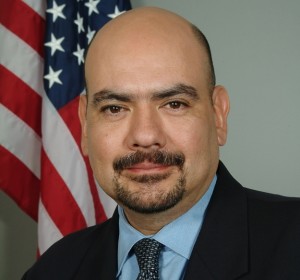 “Give us the ballot”.
“Give us the ballot”.
Those were the words uttered by Martin Luther King Jr. in his first address on the steps of the Lincoln Memorial on May 17, 1957.
Years later, King’s legacy lives on, both through the lives of those he touched and the many changes he helped to institute in our nation’s history. One of his greatest legacies is the Voting Rights Act of 1965.
Enacted by Congress to prevent the voting rights of African Americans from being diminished by unfair practices like polling taxes and literacy tests, the Voting Rights Act was amended in 1975 to provide protections for all “language minority” groups, including Latinos.
Nearly 50 years after its passage, we continue to carry on King’s work, working to ensure that all U.S. citizens, regardless of race or linguistic ability, are able to fully exercise their fundamental right to participate in the electoral process of this great nation.
In recent years, many new threats to this cornerstone of our democracy have emerged, making the battle to safeguard the voting rights of Latinos and all minority groups more important than ever.
In 2011, eight states passed restrictive laws requiring voters to show photo identification before casting ballots. Of these states, three states went even farther, imposing additional burdensome proof of citizenship requirements on its voters. Historically, these types of requirements have posed significant obstacles for many of our nation’s most vulnerable populations, including elderly, low-income and Latino voters.
In other areas of the country, the redistricting process has emerged as a serious threat to the strength of the electoral voice of Latino voters. In Los Angeles County, a place with a history of sustained discrimination against the Latino community and persistent barriers to Latino political participation, the Board of Supervisors has once again failed to approve a plan that would provide fair representation for Latinos.
In Texas, a state that gained four Congressional seats largely as a result of the growth of the Latino population, the state legislature enacted maps that did not adequately reflect this growth by providing Latino voters with the opportunity to cast ballots in districts that would allow them to elect the political leaders of their choice.
Fortunately for Latinos, the Voting Rights Act has become a critical tool in helping us combat the implementation of measures that aim to thwart the electoral power of Latino and minority voters. In its court challenge to the Texas redistricting plan, the Department of Justice cited the Act, arguing that the maps would result in a diminished ability of minority voters to elect the candidates of their choice.
With 2010 Census data showing Latinos now number more than 50 million in the country today, it’s unlikely that we’ll see these threats cease anytime soon. Heading into the 2012 election, the Voting Rights Act will continue to be a vital component in the fight to eliminate unfair political barriers to Latino participation in the electoral process.
Our organization, the National Association of Latino Elected and Appointed Officials (NALEO) Educational Fund, will continue to monitor these developments and carry on the legacy left by King through our efforts to ensure that Latino voters are able to fully participate in our nation’s democracy in 2012 and beyond.
What else can our community do to honor the life and legacy of Martin Luther King Jr. this year? Well, the answer to that is simple.
We can cast our ballots on November 6th.
Arturo Vargas is the Executive Director of the National Association of Latino Elected and Appointed Officials (NALEO) Educational Fund. The organization is the nation’s leading non-partisan, non-profit organization that facilitates full Latino participation in the American political process, from citizenship to public service.

[…] Read the rest here: Guest Blogger Series: Arturo Vargas “Latinos and Voting Rights: The … […]